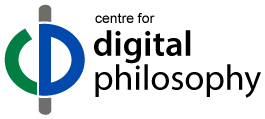- Submit
-
Browse
- All Categories
- Metaphysics and Epistemology
- Value Theory
- Science, Logic, and Mathematics
- Science, Logic, and Mathematics
- Logic and Philosophy of Logic
- Philosophy of Biology
- Philosophy of Cognitive Science
- Philosophy of Computing and Information
- Philosophy of Mathematics
- Philosophy of Physical Science
- Philosophy of Social Science
- Philosophy of Probability
- General Philosophy of Science
- Philosophy of Science, Misc
- History of Western Philosophy
- Philosophical Traditions
- Philosophy, Misc
- Other Academic Areas
- More
Switch to: References
Citations of:
Add citations
You must login to add citations.
|
|
|
Metaethical debunking arguments often conclude that no moral belief is epistemically justified. Early versions of such arguments largely relied on metaphors and analogies and left the epistemology of debunking underspecified. Debunkers have since come to take on substantial and broad-ranging epistemological commitments. The plausibility of metaethical debunking has thereby become entangled in thorny epistemological issues. In this thesis, I provide a critical yet sympathetic evaluation of the prospects and challenges facing such arguments in light of this development. In doing so, (...) |
|
|
While many have argued that moral disagreement poses a challenge to moral knowledge, the precise nature of this challenge is controversial. Indeed, in the moral epistemology literature, there are many different versions of ‘the’ argument from moral disagreement to moral scepticism. This paper contributes to this vast literature on moral disagreement by arguing for two theses: 1. All (or nearly all) moral disagreement arguments share an underlying structure; and, 2. All moral disagreement arguments that satisfy this underlying structure cannot establish (...) |
|
|
SPECIAL ISSUE ON DISAGREEMENTS: The fact of moral disagreement is often raised as a problem for moral realism. The idea is that disagreement amongst people or communities on moral issues is to be taken as evidence that there are no objective moral facts. While the fact of ‘folk’ moral disagreement has been of interest, the fact of expert moral disagreement, that is, widespread and longstanding disagreement amongst expert moral philosophers, is even more compelling. In this paper, I present three arguments (...) |
|
|
This paper introduces and motivates a solution to a dilemma from peer disagreement. Following Buchak (2021), I argue that peer disagreement puts us in an epistemic dilemma: there is reason to think that our opinions should both change and not change when we encounter disagreement with our epistemic peers. I argue that we can solve this dilemma by changing our credences, but not our beliefs in response to disagreement. I explain how my view solves the dilemma in question, and then (...) |
|
|
This book presents an original discussion and analysis of epistemic peer disagreement. It reviews a wide range of cases from the literature, and extends the definition of epistemic peerhood with respect to the current one, to account for the actual variability found in real-world examples. The book offers a number of arguments supporting the variability in the nature and in the range of disagreements, and outlines the main benefits of disagreement among peers i.e. what the author calls the benefits to (...) |
|
|
Conciliationism is the view that an agent must revise her belief in a proposition when she becomes aware that there is an epistemic peer who disagrees with her about that proposition. If epistemic peers are anything less than strict cognitive and evidential equals, then even slight differences could explain away why the two parties disagree in the first place. But this strict notion of peerhood never obtains in many, if not most, of real-life cases disagreements between inquirers. One recent account (...) |
|
|
This article examines the central epistemological issues tied to the recognition of disagreement. |


